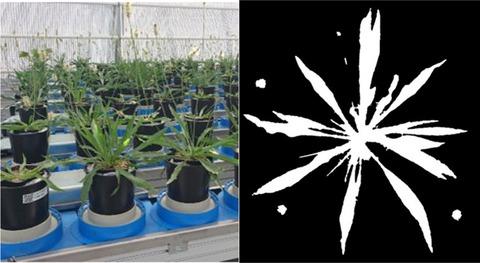Our official English website, www.x-mol.net, welcomes your
feedback! (Note: you will need to create a separate account there.)
Effect of maternal infection on progeny growth and resistance mediated by maternal genotype and nutrient availability
Journal of Ecology ( IF 5.3 ) Pub Date : 2020-12-10 , DOI: 10.1111/1365-2745.13568 Layla Höckerstedt 1, 2 , Hanna Susi 1 , Anna-Liisa Laine 1, 3
中文翻译:

母体感染对母体基因型和营养可用性介导的后代生长和抵抗力的影响
更新日期:2020-12-10
Journal of Ecology ( IF 5.3 ) Pub Date : 2020-12-10 , DOI: 10.1111/1365-2745.13568 Layla Höckerstedt 1, 2 , Hanna Susi 1 , Anna-Liisa Laine 1, 3
Affiliation

|
- Maternal effects of pathogen infection on progeny development and disease resistance may be adaptive and have important consequences for population dynamics. However, these effects are often context‐dependent and examples of adaptive transgenerational responses from perennials are scarce, although they may be a particularly important mechanism generating variation in the offspring of long‐lived species.
- Here, we studied the effect of maternal infection of Plantago lanceolata by Podosphaera plantaginis, a fungal parasite, on the growth, flower production and resistance of the progeny of six maternal genotypes in nutrient‐rich and nutrient‐poor environments. For this purpose, we combined a common garden study with automated phenotyping measurements of early life stages, and an inoculation experiment.
- Our results show that the effects of infection on the mother plants transcend to impact their progeny. Although maternal infection decreased total leaf and flower production of the progeny by the end of the growing season, it accelerated early growth and enhanced resistance to the pathogen P. plantaginis.
- We also discovered that the effects of maternal infection affected progeny development and resistance through a three way‐interaction between maternal genotype, maternal infection status and nutrient availability.
- Synthesis. Our results emphasize the importance of maternal effects mediated through genotypic and environmental factors in long‐living perennials and suggest that maternal infection can create a layer of phenotypic diversity in resistance. These results may have important implications for both epidemiological and evolutionary dynamics of host–parasite interactions in the wild.
中文翻译:

母体感染对母体基因型和营养可用性介导的后代生长和抵抗力的影响
病原体感染对后代发育和抗病性的母体影响可能是适应性的,并对种群动态产生重要影响。然而,这些影响通常是与环境相关的,并且多年生植物适应性跨代反应的例子很少,尽管它们可能是在长寿物种的后代中产生变异的特别重要的机制。
在这里,我们研究了真菌寄生虫Podosphaera plantaginis的车前子母体感染对营养丰富和营养不良环境中六种母本基因型后代的生长、开花和抵抗力的影响。为此,我们将常见的花园研究与早期生命阶段的自动表型测量以及接种实验结合起来。
我们的结果表明,感染对母本植物的影响不仅会影响其后代。尽管母体感染在生长季节结束时降低了后代的总叶和花产量,但它加速了早期生长并增强了对病原体车前草的抵抗力。
我们还发现,母体感染通过母体基因型、母体感染状态和营养可用性之间的三向相互作用影响后代发育和抵抗力。
合成。我们的结果强调了长寿多年生植物中通过基因型和环境因素介导的母体效应的重要性,并表明母体感染可以产生一层表型多样性的抗性。这些结果可能对野生宿主与寄生虫相互作用的流行病学和进化动力学具有重要意义。











































 京公网安备 11010802027423号
京公网安备 11010802027423号